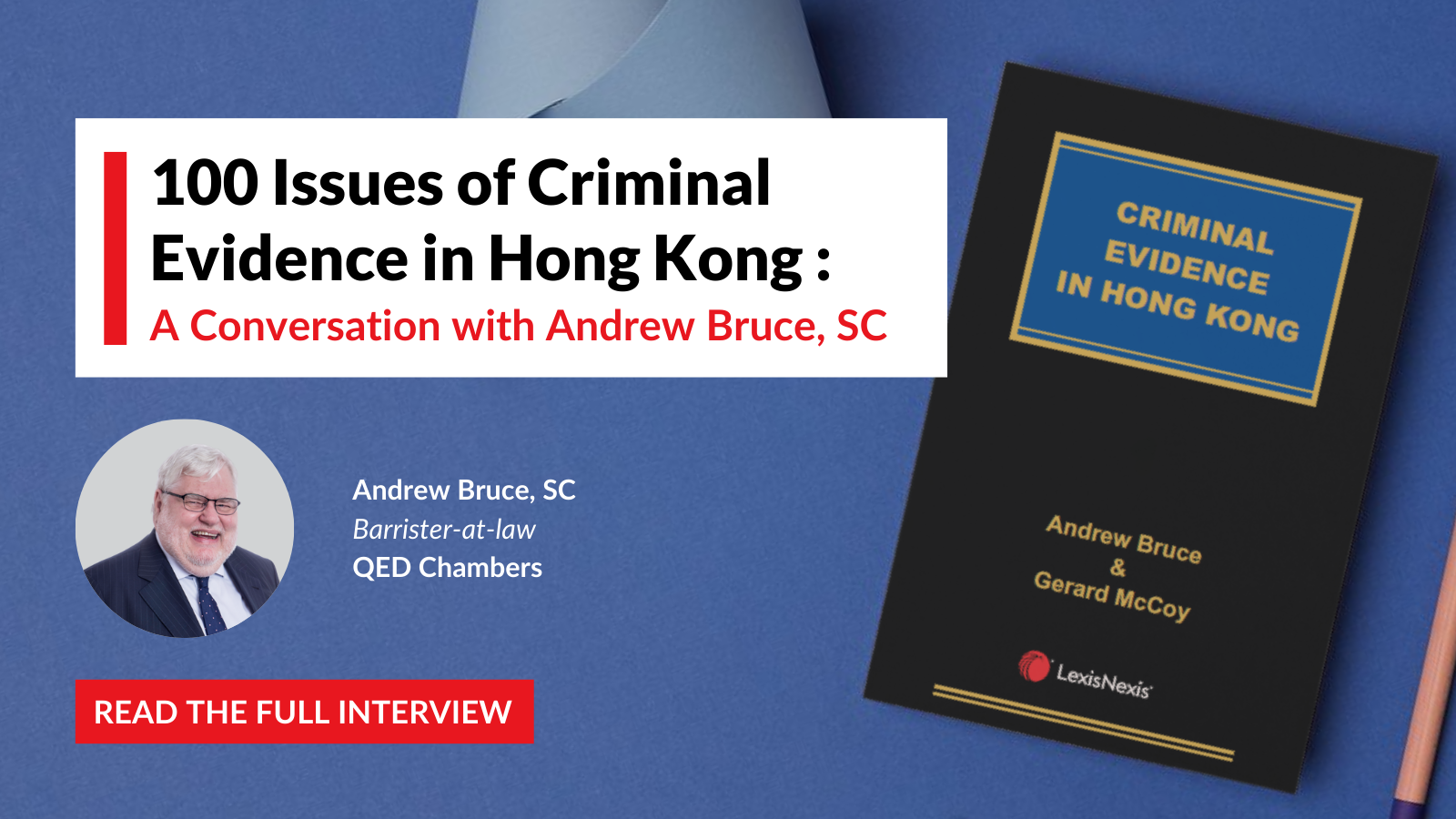A New Legal Framework Transforming Hong Kong’s Construction Industry LexisNexis Hong Kong is proud to announce two important publications that provide the most comprehensive and practical guidance available...
From January 20– Feb 6, enjoy limited‑time savings at the LexisNexis Online Bookstore . Save HK$200 when you spend HK$1,500 Save HK$500 when you spend HK$3,000 Discounts are automatically applied...
Celebrate the festive season with our 2025 End-of-Year Sale, featuring exclusive discounts, curated book bundles, and limited-time flash deals! From 8 to 31 December 2025 , enjoy special savings across...
The latest update to Emden’s Construction Law Hong Kong marks a significant milestone in the legal landscape of Hong Kong’s construction industry. Issue 66 , authored by Arthur McInnis , delivers the first...
We are proud to celebrate the 100th issue of Criminal Evidence in Hong Kong , a publication that has long served as a trusted guide for legal professionals navigating the complexities of criminal evidence...

We are proud to celebrate the 100th issue of Criminal Evidence in Hong Kong, a publication that has long served as a trusted guide for legal professionals navigating the complexities of criminal evidence law.
To mark this milestone, we sat down with Andrew Bruce, SC, co-author of the publication, for a candid and insightful Q&A reflecting on the evolution of criminal evidence in Hong Kong, the challenges of legal reform, and the publication's future.
The Evolution of Criminal Evidence in Hong Kong
Q: How has criminal evidence evolved in Hong Kong over the past 100 issues?
“Generally, the law of criminal evidence has evolved to reflect the more general increase in emphasis on human rights. For instance, the courts have imposed greater requirements on the prosecution to make disclosure to an accused person of material in the possession of the prosecution. A dramatic example of this occurred only recently in relation to litigation concerning a successful application by the prosecution to withhold material under the rules concerning public interest immunity. Essentially, the CFA said that if the withholding of the material endangers the right to a fair trial, then there will be no trial. This reflects the underlying concern to ensure that the accused receives a fair trial. There has also been a reduction in the mind-numbing level of technicality of the rules of evidence, particularly in relation to the rules concerning the admissibility of hearsay.”
Landmark Cases and Legal Developments
Q: What were some landmark cases or developments in criminal evidence during this period?
“The landmark cases are generally the basis for the changes in the rules relating to evidence in criminal cases. The legislature here is, to put it kindly, glacially slow in the area of law reform.”
Legislative and Procedural Changes
Q: Can you highlight any pivotal changes in legislation or practice?
“There are some changes which improve the means by which evidence may be presented in court such as taking testimony by CCTV. However, in terms of big changes our legislature has been very slow to modernise this area of the law.”
Technology and Evidence
Q: How has technology impacted the collection and analysis of criminal evidence?
“There have been multiple advances in DNA technology and, broadly, the courts have kept up with this. Slowly but surely there is a broader use of CCTV to provide parties with the option of obtaining testimony from outside Hong Kong.”
Personal Reflections and the Book’s Origins
Q: Can you share any personal anecdotes or experiences related to your work in this field?
“The Genesis of this book was my prosecuting a case at the long defunct San Po Kong Magistrates Court where a very senior opponent was, in essence, able to persuade a magistrate that the sun came up in the west and went down in the east and that magistrate met my protests with ‘Unless you can provide me with authority I do not propose to listen to you.’ Bruce & McCoy was the product of that frustration.”
About the Publication
Criminal Evidence in Hong Kong provides a cohesive and engaging perspective on the substantive law relating to the principles of evidence in criminal cases. It explores their application in both Hong Kong and other jurisdictions.
This single-binder looseleaf work covers:
- Fundamental principles of evidence
- Standards of proof
- Admissibility of various types of evidence
- Rules regulating witnesses
- Hearsay rules and their exceptions
- Other key evidentiary doctrines
Written in a reader-friendly and concise style, the text offers in-depth discussion and analysis of judicial decisions, making it an indispensable resource for practitioners, judges, and academics.
The Future of the Publication
Q: How can the publication continue to serve as a valuable resource for professionals in the field?
“The key to continued service to lawyers and judges is to make Bruce & McCoy more and more accessible. One way in which this is done is by placing the work online. The other is my concern to make the language of the book easier to read, which is my own personal version of the Maoist concept of constant revolution.”
We extend our heartfelt thanks to Andrew Bruce, SC, for generously sharing his time, insights, and reflections with us. His dedication to clarity, accessibility, and the rule of law continues to shape the legal landscape in Hong Kong and beyond.
Criminal Evidence in Hong Kong stands not only as a legal reference but as a testament to the enduring value of thoughtful scholarship and practical experience. We are honoured to celebrate this 100th issue milestone with him.
Contact us for the publication
Email: marketing.hk@lexisnexis.com
Telephone number:+852 2179-7888